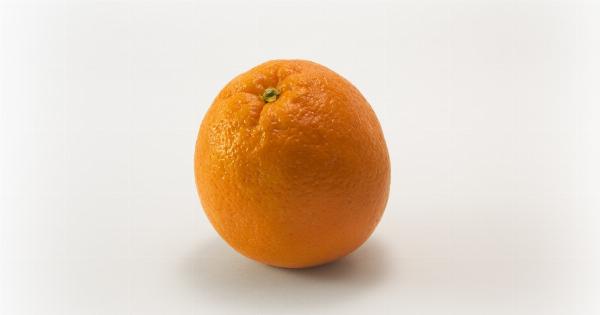Erectile dysfunction (ED) is a prevalent condition characterized by the inability to achieve or maintain an erection sufficient for sexual intercourse.
While there are multiple factors that contribute to the development of ED, diet and nutrition play an important role. Proper intake of vitamins and minerals is crucial for overall health, including sexual function.
This article explores the connection between vitamin intake and erectile dysfunction and provides insights into the nutrients that can potentially improve erectile health.
Vitamin A and Erectile Dysfunction
Vitamin A is an essential nutrient required for various bodily functions, including the maintenance of healthy reproductive organs. It has antioxidant properties that help protect the cells from damage, including those involved in erectile function.
A deficiency in vitamin A may lead to the impairment of erectile function. Animal studies have shown that a lack of vitamin A can cause structural changes in the penile tissues, leading to reduced blood flow and erectile dysfunction.
However, excessive intake of vitamin A supplements can also be harmful and may have adverse effects on sexual health.
Vitamin B Complex and Erectile Dysfunction
The B vitamins, including B1 (thiamine), B2 (riboflavin), B3 (niacin), B5 (pantothenic acid), B6 (pyridoxine), B12 (cobalamin), and folic acid (B9), play a crucial role in energy metabolism and overall cellular function.
Vitamin B3, in particular, has been studied extensively for its potential benefits in improving erectile function.
It helps enhance blood flow by promoting the relaxation of blood vessels and improving nitric oxide synthesis – a crucial factor for achieving and maintaining an erection. Some studies have reported improvements in erectile function with the use of high-dose B3 supplementation.
Other B vitamins, such as B5 and B12, also contribute to overall sexual health by supporting hormone production, reducing stress levels, and boosting energy levels.
Vitamin C and Erectile Dysfunction
Vitamin C is a powerful antioxidant that helps protect the blood vessels and promotes healthy blood flow. It plays a crucial role in collagen synthesis, which is essential for maintaining healthy penile tissues and proper erectile function.
Studies have suggested a positive correlation between vitamin C intake and erectile function. The antioxidant properties of vitamin C help reduce oxidative stress, a potential cause of erectile dysfunction.
Additionally, vitamin C improves nitric oxide availability, contributing to better blood flow and enhanced sexual performance.
Vitamin D and Erectile Dysfunction
Vitamin D, often referred to as the “sunshine vitamin,” plays a vital role in numerous physiological functions throughout the body. Recent research has also explored its potential impact on erectile function.
Low levels of vitamin D have been associated with an increased risk of erectile dysfunction.
This vitamin is involved in the production of nitric oxide, a compound responsible for relaxing blood vessels and promoting adequate blood flow to the penile tissues. Therefore, maintaining optimal vitamin D levels could potentially improve erectile health.
Vitamin E and Erectile Dysfunction
Vitamin E is a fat-soluble antioxidant that protects the cells from oxidative stress. It is involved in various physiological functions, including maintaining healthy blood vessels and improving blood circulation.
Studies have shown that vitamin E supplementation may have a positive impact on erectile function. It improves vascular function, increases nitric oxide production, and reduces inflammation – all crucial factors for maintaining healthy erections.
Vitamin K and Erectile Dysfunction
Vitamin K is an essential nutrient involved in blood clotting and bone health. While its direct link to erectile dysfunction is not well-studied, vitamin K indirectly contributes to sexual health by maintaining proper cardiovascular function.
Healthy blood circulation is crucial for achieving and maintaining an erection. Vitamin K helps prevent mineralization of blood vessels, thereby promoting efficient blood flow and reducing the risk of erectile dysfunction.
Other Essential Nutrients for Erectile Function
In addition to vitamins, there are several other nutrients that play a crucial role in erectile function:.
1. Zinc
Zinc is an essential mineral involved in multiple processes within the body, including hormone production and immune function. It is crucial for the production of testosterone, a hormone necessary for sexual health and function.
Zinc supplementation has been shown to improve erectile function in individuals with zinc deficiency.
2. L-Arginine
L-Arginine is an amino acid that serves as a precursor to nitric oxide – a molecule crucial for maintaining proper blood vessel function and achieving an erection.
Studies have suggested that L-arginine supplementation can improve erectile function, particularly in individuals with vascular-related erectile dysfunction.
3. Omega-3 Fatty Acids
Omega-3 fatty acids, primarily found in fatty fish like salmon and mackerel, possess anti-inflammatory properties and improve overall cardiovascular health.
Maintaining a healthy heart and blood circulation is vital for erectile function, making omega-3 fatty acids an important nutrient.
4. Selenium
Selenium, an essential trace mineral, is a powerful antioxidant that helps protect the cells from oxidative damage. It contributes to the proper functioning of the reproductive system and supports healthy sperm production.
While its direct link to erectile function is not well-explored, maintaining optimal selenium levels may promote overall sexual health.
Conclusion
A well-balanced diet that includes a variety of vitamins and essential nutrients is crucial for overall health, including sexual function.
While more research is needed to establish definitive connections, maintaining adequate levels of vitamins A, B complex, C, D, and E, as well as essential minerals like zinc and selenium, may contribute to improved erectile function. Incorporating these nutrients into a healthy lifestyle, along with regular exercise and stress management, can potentially lead to better sexual health and reduced risk of erectile dysfunction.































